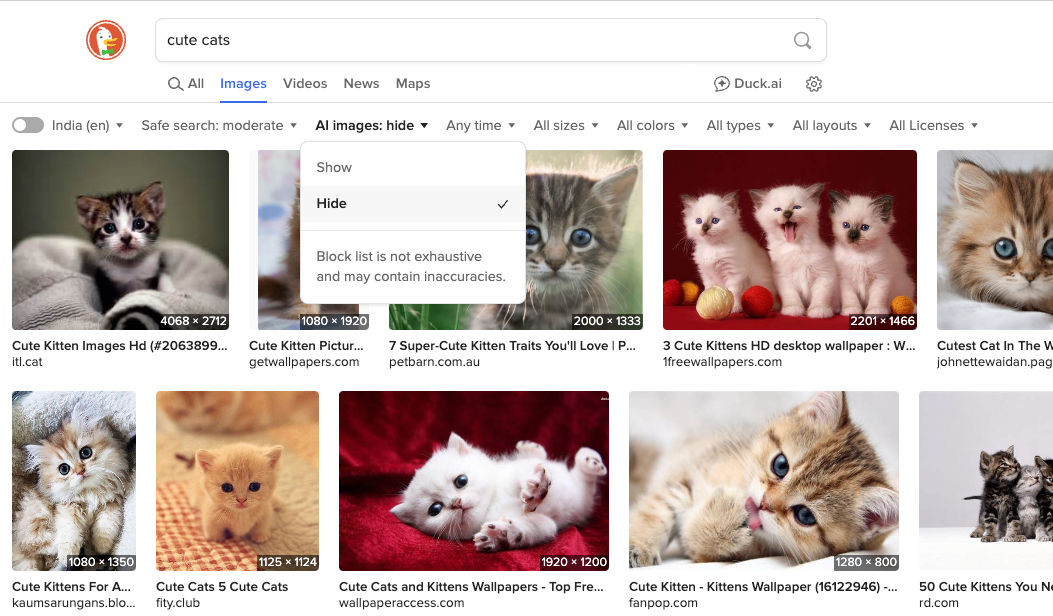
Unlock Google's Hidden Powers: Calculator, Unit, and Currency Converter Hacks
Discover how to use Google as a free calculator, unit converter, and currency tool. Quick tips to save time on everyday math and conversions.
If you’re tired of sifting through AI-generated images clogging up your search results, DuckDuckGo has a solution. The privacy-focused search engine recently rolled out a new feature that lets users filter out AI-generated images, ensuring a more authentic and relevant search experience.
This move comes as the internet becomes increasingly saturated with synthetic content, often referred to as “AI slop.” Whether you’re searching for inspiration, references, or just real photos, DuckDuckGo’s latest update makes it easier to cut through the noise.
Using the new feature is simple. After performing a search on DuckDuckGo, head to the Images tab. You’ll notice a new drop-down menu labeled “AI images: show.” Click it, select “AI images: hide,” and watch as AI-generated content disappears from your results.

For an even smoother experience, you can bookmark noai.duckduckgo.com. This automatically enables the AI filter and hides DuckDuckGo’s AI-assisted summaries and chat icons, giving you full control over your search preferences.
DuckDuckGo’s filter relies on community-curated lists that identify known sources of AI-generated images. While the company admits it may not catch every synthetic image, it significantly reduces their presence, making your search results cleaner and more trustworthy.
The rise of AI tools has transformed how content is created, but it’s also flooded the internet with synthetic images that can feel repetitive or irrelevant. DuckDuckGo’s philosophy of keeping AI features “private, useful, and optional” shines through with this update. It empowers users to decide how much AI they want in their search experience.
This feature is a win for anyone who values authenticity in their search results. Whether you’re a creative professional looking for real-world inspiration or just someone who wants to avoid AI-generated clutter, DuckDuckGo’s filter is a step toward preserving the integrity of online searches.
DuckDuckGo’s move aligns with a broader push for user control in the digital space. As AI continues to shape the internet, tools like this one show that companies are listening to user frustrations. For those interested in exploring more ways to optimize their online experience, check out our guide on the importance of server locations in VPN performance or learn how to test VPN speeds to ensure your browsing stays private and efficient.
If you’re curious about other privacy-focused tools, our article on the best VPNs for Android phones and tablets offers practical recommendations. For those diving deeper into tech trends, our piece on IoT trends and edge computing explores how connected devices are evolving.